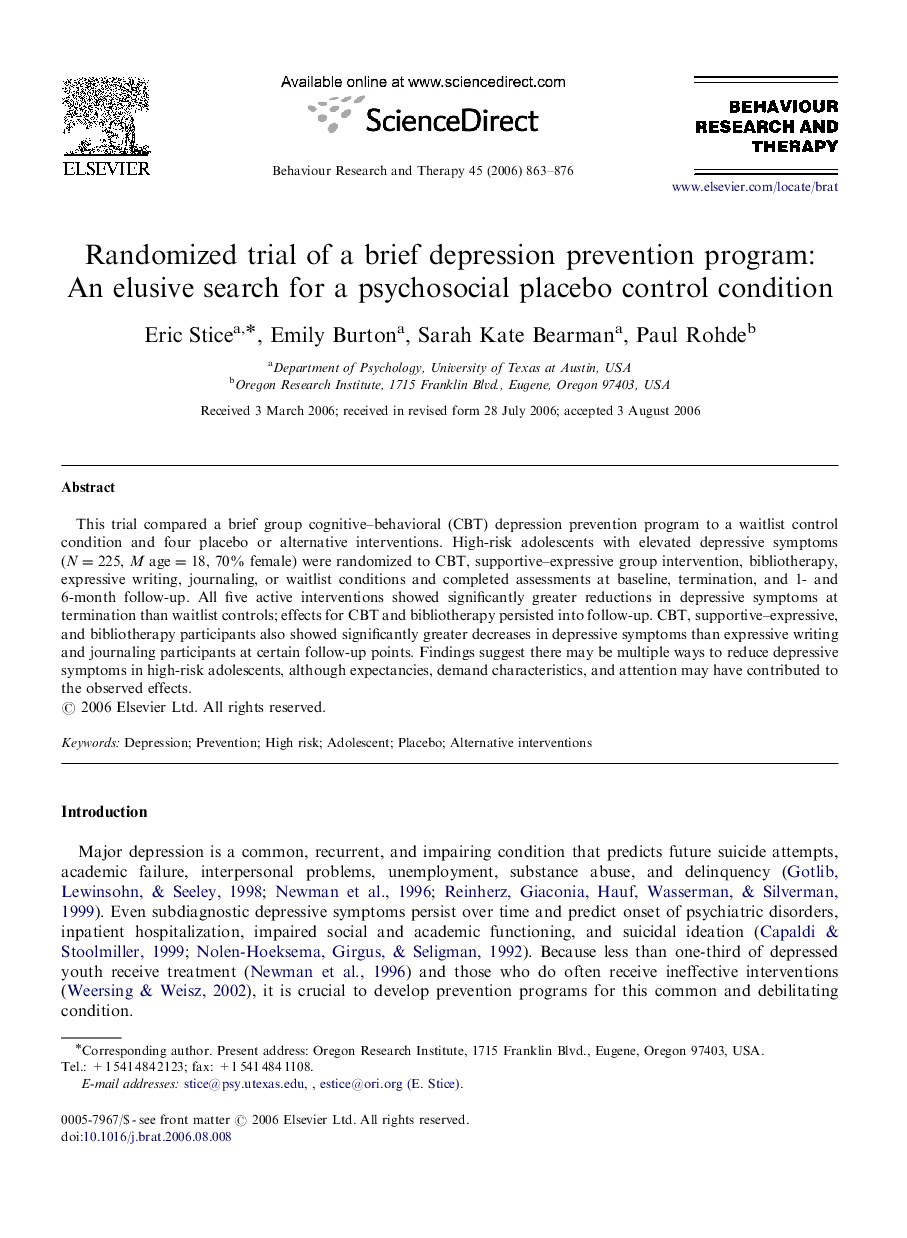| Article ID | Journal | Published Year | Pages | File Type |
|---|---|---|---|---|
| 902328 | Behaviour Research and Therapy | 2007 | 14 Pages |
This trial compared a brief group cognitive–behavioral (CBT) depression prevention program to a waitlist control condition and four placebo or alternative interventions. High-risk adolescents with elevated depressive symptoms (N=225, M age=18, 70% female) were randomized to CBT, supportive–expressive group intervention, bibliotherapy, expressive writing, journaling, or waitlist conditions and completed assessments at baseline, termination, and 1- and 6-month follow-up. All five active interventions showed significantly greater reductions in depressive symptoms at termination than waitlist controls; effects for CBT and bibliotherapy persisted into follow-up. CBT, supportive–expressive, and bibliotherapy participants also showed significantly greater decreases in depressive symptoms than expressive writing and journaling participants at certain follow-up points. Findings suggest there may be multiple ways to reduce depressive symptoms in high-risk adolescents, although expectancies, demand characteristics, and attention may have contributed to the observed effects.
